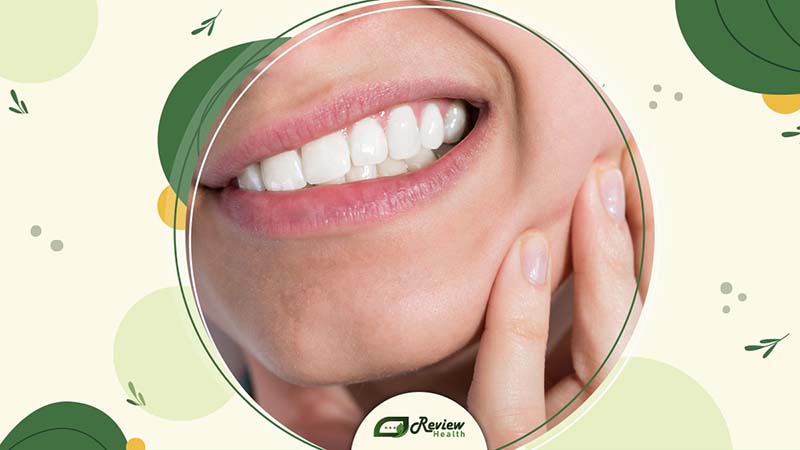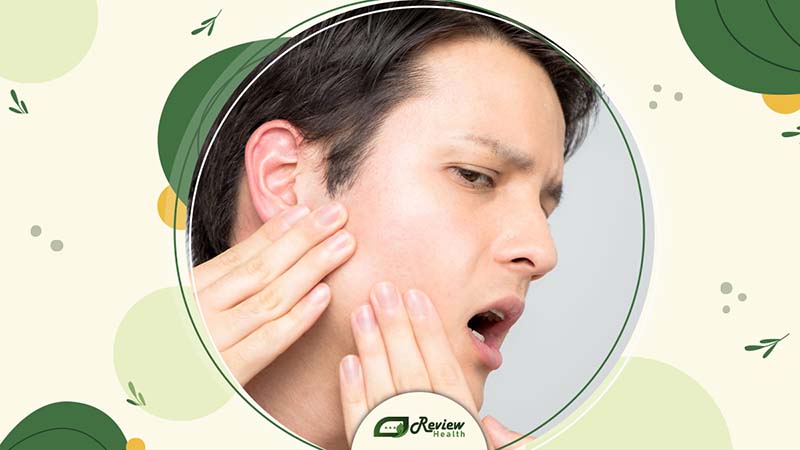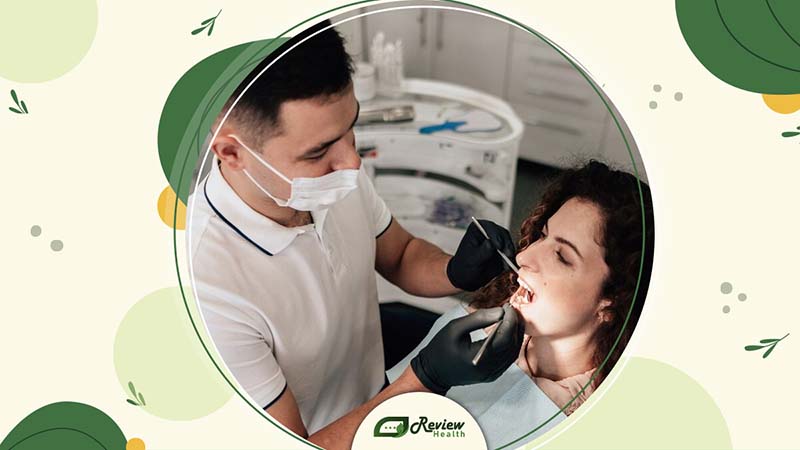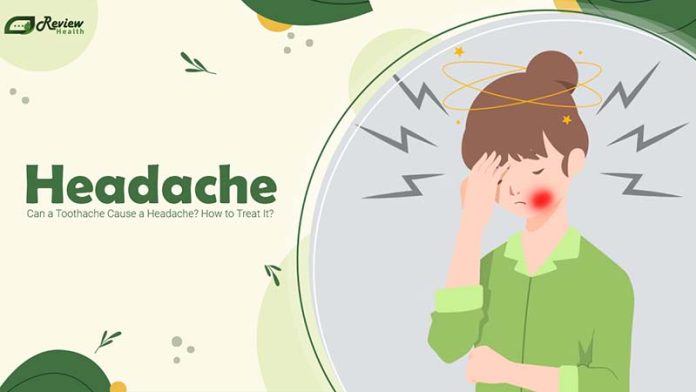“Can tooth decay cause headaches?” This is the question we will tackle in this friendly guide from Review Health. Tooth decay is something most of us will face at some point. It can show up as cavities, discoloration, or spots. But if we ignore it, tooth decay can worsen, leading to infection, tooth rot, and even tooth loss. A lesser-known side effect of poor dental health is that it can cause headaches. In this guide, we’ll also talk about what you can do if you have headaches because of tooth decay. We hope this engaging introduction will make you curious to learn more about the link between your dental health and headaches.
Can Tooth Decay Cause Headaches?
Tooth decay can indeed trigger headaches. It often begins with tiny, pinhole-sized openings in the teeth that can rapidly expand into larger cavities beneath the tooth’s surface.
While cavities themselves typically don’t directly cause headaches, if they go untreated, they can escalate into infections and abscesses, both of which are known to induce headaches.

Inflammation or infection of a tooth or the surrounding gum tissue can stimulate nerve endings in the tooth root, resulting in localized pain. This discomfort can radiate to other areas of the head, leading to the onset of a headache.
If dental infections are allowed to progress unchecked, they can potentially spread to other parts of the body via the bloodstream, precipitating serious health complications.
Exploring the Relationship Between Toothache and Headache
When you’re dealing with both a toothache and a pounding headache, there’s often a connection between the two, hinting at an underlying problem. The trigeminal nerve, responsible for sensations and movements in the face and eyes, can get aggravated by dental issues such as untreated cavities, cracked teeth, or wisdom teeth causing crowding, potentially setting off a migraine. Migraines, known for their fluctuating intensity and typically one-sided pain, might also bring along symptoms like nausea, vomiting, and sensitivity to light and sound.
Another possibility is referred pain, where discomfort from one area, such as advanced gum disease or teeth grinding, is felt in another area like the head or around the eyes. Moreover, serious conditions like cavernous sinus thrombosis—a rare but grave condition resulting from an infection spreading to the brain, leading to a blood clot behind the eye—can present with intense headaches.
There are also dental-related issues like temporomandibular joint disorders (TMDs) and trigeminal neuralgia that have the potential to trigger headaches.
Causes of Headache Due to Tooth Decay
There are certain conditions that can lead to both a headache and toothache, but they aren’t necessarily linked to dental or headache disorders.
Headache Due to Teeth Grinding and Jaw Clenching

Medically referred to as bruxism, teeth grinding is a common cause of headaches. Stress often triggers teeth grinding, and many people do it unconsciously, particularly during sleep. Grinding exerts pressure on the jaw and surrounding muscles, which can result in tension headaches. If you wake up with jaw discomfort or experience headaches in the morning, it could be a sign of nighttime teeth grinding.’
Headache Due to Wisdom Teeth
Malocclusion occurs when your teeth don’t align correctly when you bite. In simpler terms, if your teeth don’t form a smooth curve when your mouth is closed, you likely have malocclusion, often caused by wisdom teeth. Malocclusion causes your jaw muscles to compensate for the misalignment, leading to muscle strain and headaches that can radiate throughout your head.
Dig deeper: Understanding Wisdom Tooth Decay: Symptoms, Causes, Signs identify and Pain-Free Treatment Options
Temporomandibular Joint Disorder

Temporomandibular Joint Disorder, commonly known as TMJ, occurs when the jaw and surrounding muscles don’t function properly. TMJ can be triggered by factors like whiplash, sports injuries, or prolonged wide opening of the mouth. It results in muscle constriction, leading to shooting pains in the jaw area. Individuals with TMJ may also experience jaw clicking or dislocation, both of which can cause intense facial and jaw pain that may extend to the head.
Sinusitis
Sinusitis, an inflammation of the sinuses, can cause discomfort in one or several teeth, particularly those below the maxillary sinus (located behind the cheekbones). A sinus headache, aggravated when bending forward, is a common symptom of sinusitis.
Trigeminal Neuralgia
Trigeminal neuralgia is a pain disorder caused by compression or damage to the trigeminal nerve. It results in sudden, severe facial pain, often described as stabbing or shock-like, typically occurring on one side of the face. The pain is frequently felt along the upper or lower jaw. Many individuals initially seek dental care, assuming they have a tooth abscess. Unfortunately, misdiagnoses sometimes lead to unnecessary dental procedures like root canals or tooth extractions before a diagnosis of trigeminal neuralgia is made.
How to Alleviate Headache Caused by Tooth Decay
When a headache stems from tooth decay affecting the nerve, addressing the nerve itself becomes crucial. The primary treatment for an unhealthy nerve is a root canal procedure, which involves removing the infected nerve from the tooth.

Following the completion of the root canal, a dental crown is typically necessary to safeguard the tooth. This step is essential because the removal of the nerve also eliminates the tooth’s blood supply. Without this blood supply, the tooth lacks the necessary nutrients, gradually becoming more brittle over time. Failure to protect the tooth with a crown increases the risk of fracturing it.
Related articles
- 7 Stages of Tooth Decay: A Guide to Prevention and Treatment
- Learn How to Prevent Tooth Decay Naturally With Just 13 Simple Ways
- List of Foods That Cause Tooth Decay: What to Avoid
- Healthy Food List: 12 Best Foods That Prevent Tooth Decay and Tips for Cavities
Can Tooth Decay Cause Migraines?
Migraines are intense headaches characterized by throbbing pain, typically felt on one side of the head. They often come with additional symptoms like nausea, vomiting, and sensitivity to light and sound, lasting anywhere from 4 to 72 hours and profoundly impacting daily life. The trigeminal nerve plays a crucial role in the development of migraines.
Research indicates that toothaches can indeed lead to migraines, with the trigeminal nerve serving as the connecting link. This nerve is responsible for sensation in the facial area, transmitting signals of pain, temperature, and touch from the face to the brain.
Given that branches of the trigeminal nerve extend to the jaw, lips, and gums, it’s theorized that infections in the teeth or gums exert pressure on the nerve, potentially triggering migraines.
Is a Toothache Causing a Headache Dangerous?
Experiencing a headache due to a toothache can raise concerns and may indicate an underlying health issue. The relationship between toothaches and headaches often involves the trigeminal nerve, which can become irritated by dental problems such as cavities, cracked teeth, or impacted wisdom teeth, potentially leading to migraines.
In some instances, tooth infections or other dental issues can trigger referred pain to the head, necessitating professional assessment and treatment. Therefore, if you’re grappling with a combination of toothache and headache, it’s advisable to consult a healthcare provider or dentist for evaluation and appropriate care.
What Should You Do When You Have a Toothache Accompanied by a Headache?
Experiencing both tooth pain and headaches simultaneously may require time and consultation with multiple healthcare providers to pinpoint the underlying cause. You must be persistent in seeking the correct diagnosis to get the right treatment for your pain.
Simple interventions like cavity fillings, antibiotics for sinus infections, or using a mouthguard to prevent teeth grinding may suffice for relief. However, if the issue is more complex, consulting a specialist sooner rather than later is advisable.
While awaiting appointments with your healthcare provider or dentist, you can utilize over-the-counter (OTC) medications to alleviate toothache and headache discomfort. Research indicates that ibuprofen and other non-steroidal anti-inflammatory drugs (NSAIDs) are more effective in easing dental pain compared to opioids.
Additionally, applying a cold compress to the painful side of your face can help relieve toothache pain. You can also apply the cold compress to your head and neck for migraine pain relief. Ensure to protect your skin by placing a clean cloth between yourself and the compress.
Conclusion
Can tooth decay cause migraines? Yes, it can, especially when the decay is so severe that it starts to affect the nerve. Smaller cavities, which usually only affect the enamel and dentin, are less likely to cause migraines and often don’t show any symptoms. But if we don’t treat tooth decay, it can lead to more than just migraines. It can cause functional issues, infections, and even tooth loss.
Getting the right treatment for tooth decay promptly can help ease the pain and stop other health problems from happening. In this friendly guide from Review Health, we’ve answered the question: “Can tooth decay cause headaches?” We’ve also looked at effective treatments for dental decay. We hope you’ve found this information useful and that it encourages you to take good care of your dental health.

